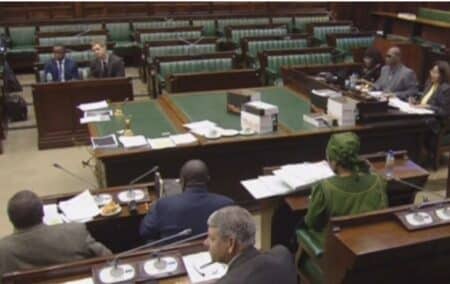On Friday 19 March the Institute of Race Relations (IRR) wrote to the Committee Secretary of the Portfolio Committee on Public Works and Infrastructure with regard to the flawed public participation process on the Expropriation Bill.
Both the Ad Hoc Committee and the Portfolio Committee, in dealing with the expropriation without compensation (EWC) bills, have ‘breached their constitutional obligations to ‘facilitate public participation in the legislative process’, said the IRR.
The IRR called for both committees to start afresh, and to also ensure that proper socio-economic assessments (as required by law) are performed to determine the impact of the proposed legislation.
The Portfolio Committee has received tens of thousands of submissions in the past few weeks and, the IRR believes, is unlikely to have given them all the necessary consideration. Despite this, the Committee is going ahead with oral presentations next week.
‘In rushing ahead in this way, the Portfolio Committee is ignoring Parliament’s constitutional obligation to “facilitate public participation” in the legislative process,’ according to IRR project manager, Terence Corrigan. ‘It [the Committee] is also overlooking a number of Constitutional Court judgments which emphasise that a tick-box attitude to public consultation is not enough.’
Corrigan claims further claimed that, in the IRR’s opinion, the Ad Hoc Committee charged with drafting an EWC constitutional amendment bill has also failed in terms of public consultation. That Committee had received over 204 000 written submissions by the end of February 2020 and has still not read all submissions. After a previous refusal to hear oral presentations, the Ad Hoc Committee has now agreed to the hearing of presentations. However, it refuses to extend the process beyond 25 March – irrespective of how many oral submissions might be excluded.
Corrigan says that ‘Both committees need to draw back, recognise the deep flaws in their public consultation processes, and start afresh. Moreover, if the public is truly to have an opportunity to “know about the issues”, as the Constitution requires, both committees should ensure that the country’s most knowledgeable and experienced economists are commissioned to conduct a comprehensive socio-economic assessment (SEIAS) of the likely costs and consequences of EWC – especially in South Africa’s straitened economic circumstances.’
He also warned that any failure to address the socio-economic consequences of EWC legislation would result in South Africa suffering an economic collapse similar to those in Venezuela and Zimbabwe, with investment drying up and skills and capital fleeing.
Besides proposing both committees start afresh by securing comprehensive socio-economic impact reports on the potential consequences of the bills, the IRR urged that they work towards removing an ill-advised ideological commitment to state ownership and control.


